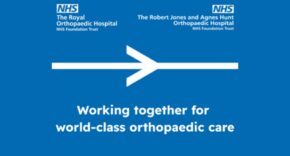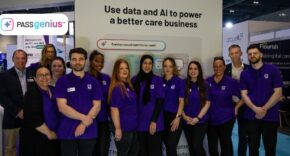
Clinical trial supporting these patients shows 1 in 4 admissions prevented and mortality reduced.
An AI tool which was recently tested on NHS Greater Glasgow & Clyde’s existing patient data has proved it can identify 83 per cent of people who would otherwise need unplanned hospital care months in advance.
The tool, called HN Predict, is able to identify patients early enough to prevent many of their visits to A&E and hospitalisations. In a clinical trial, recently published in the British Journal of General Practice (BJGP),1 one out of four referrals to hospital identified by the AI-tool could be prevented by supporting these high-risk patients with nurse-led, virtual ward support. Patients supported through this novel predictive and preventive clinical pathway reported increased quality of life, improved physical health and an increase in their ability to manage their health conditions themselves.2
The same trial also shows an increased survival rate of more than 50 per cent, especially in deprived elderly males over 65 years, which lasted throughout the 24-month trial.
This is one of the first controlled and randomised studies demonstrating a statistically significant impact on preventing care needs and increasing survival using an AI tool and virtual ward model in the NHS. It shows the potential of using AI and machine learning to analyse existing patient data to help NHS clinical staff predict and prevent hospital care.
Using predictive models to risk-stratify key population segments is a critical approach to delivering the anticipatory care that is at the heart of the NHS Long Term Plan.
If applied to the NHS as a whole, the technology and related clinical nurse-led services, could prevent 5-7% of all unplanned hospital care and save £2,200 per patient. It would require the technology to be made available to the 1-5% of patients with the highest risk of clinical crisis and unplanned care.
The technology and its inventor, Dr Joachim Werr and chief executive, Mark England, have gained national NHS support and endorsement from the NHS Innovation Accelerator and the NHS-led Small Business Research Initiative R&D grant programme. The publication in BJGP is the first of several scientific papers now to be published from the large clinical trial which started in 2015. The trial recruited 1,800 participants at seven acute NHS trusts and followed these individuals for up to five years.
The HN Predict tool is currently being implemented in several integrated care systems in Staffordshire, North Yorkshire, Scotland and the Republic of Ireland.
Dr Joachim Werr, Founder and Executive Chair of HN, said: “HN Predict works by applying machine learning to routinely collected healthcare data, turning existing information into a powerful source for preventive healthcare. The fact that 1% of the population consumes over 50% of NHS hospital bed capacity and that many of these patients are predictable while still amenable to prevention represents a fantastic opportunity both for patients and NHS staff. It enables us to improve clinical outcomes, patient experience and saves the NHS valuable hospital resources all at once.”
Dr Paddy Hannigan, Chair of the Stafford and Surround CCG and Clinical Lead for Staffordshire & Stoke-on-Trent ICS Digital Programme, said: “Data can play a huge role for the NHS if it is collected, analysed and acted upon in the right way. The key to our work with HN was the data-driven case-finding. By using data to better forecast demand and predict outcomes we were able to manage the resources we had accordingly and reduce hospital care costs by 30% per patient.”
Fiona Bell, Lead Officer for Primary Care, NHS Vale of York CCG, said:
“The HN project initially started as a randomised controlled trial where we tested the approach across the Vale of York as the first site in the country. We saw significant improvements in patients’ health and significant reductions in the number of times they needed to access services just for reassurance after receiving health coaching. We know from this trial that the opportunity for patients to benefit from this support is substantial. Most importantly, patient feedback about the impact of HN support on their health outcomes has been very positive.
Nothing is a single solution but through HN we’ve found a service and a structured approach that wraps around all the other initiatives we are doing to support patients. I would suggest other CCGs do consider this as a person-centred approach to identifying individuals who would benefit from health coaching to improve self-care and health outcomes and manage demand on services.”
Mark England, CEO of HN said: “We’re delighted to launch HN Predict, a tool that supports a real paradigm shift in the way healthcare is delivered. In my career non-elective care has always been managed as random, inexplicable in its cause. By focusing on individual people rather than activity, and applying established machine-learning techniques, it is astounding that we can name the few thousand people who will use unplanned care. An emergency admission is a frightening and horrible experience for patients and we need to work systematically to avoid this potential harm.
“So many new models of care are based on referral. The NHS is asking GPs to screen their lists for candidate patients. GPs are too busy for this, and data-driven recruitment is the future. HN Predict uses data to target support to those most in need, not just those lucky enough to have a GP informed about the pathway. Where resources are so stretched this type of allocative efficiency is key.”











